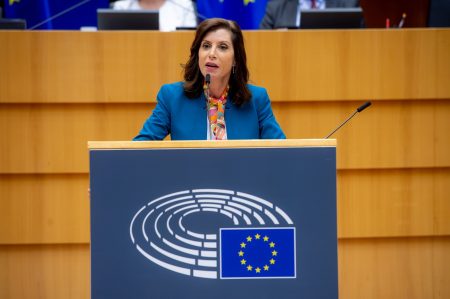A few months ago at a secret meeting in Brussels, the Commission, the European Central Bank and experts who worked on the rescue packages of Ireland, Portugal, Cyprus and Greece, attempted to evaluate the efforts in the four countries.
For the first three the conclusions were rather clear and specific. Progress was obvious, the implementation of reform policies complete and without any deviations.
On the contrary, the Greek file was full of red pen marks, delays, suspensions, backtracks and reservations. This resulted in an abundance of suspicion, while concern over the future of the country was greater than ever.
After the European elections were announced and in Brussels they heard about the many official Greek reports about the end of the bailout, reducing taxes and other heroic, they lost their mind.
That is about when Schäuble expressed himself and his intervention, despite the spin from our many reactions, essentially brought back the issue of our membership in the Eurozone.
Then, the party literally started last Thursday, on the occasion of Theoharis’ “resignation”.
In its statement the European Commission clearly illustrated its fears over developments in Greece, stressing the danger of the reform efforts in the fiscal sector going to waste.
Of course before that we had the secret meeting in Paris, where Mr. Stournaras and Mr. Papastavrou were confronted Mrs. Lagarde and Poul Thomsen’s persistence on the debt haircut issue in order to secure sustainability. They introduce terms, conditions and demand that reforms be carried out so that the country can escape the political danger.
Truth be told the path to take us out of the crisis is a long one. Every knows the weaknesses of the Greek political system and they are quick to warns us of the many dangers that lie ahead of us. That is why the cabinet reshuffle is crucial.
The composition of the new government must radiate confidence and reassure that the efforts will increase and our obligations will be implemented.
If, on the other hand, the government doesn’t provide these assurances and hints towards delays, suspensions and relaxing the financial policy, then rest assured that doubts will be cast very quick, irrespective of the consequences.
The summer is crucial and autumn is not far off. If we are not coordinated, we have no luck. Neither will the debt be settled, nor will the life of many improve. Then the crisis will make a comeback, stronger than before.
The only difference will be that there will not be that many people willing to support us, much less tolerate us.
Antonis Karakousis
Originally published in the Saturday print edition





